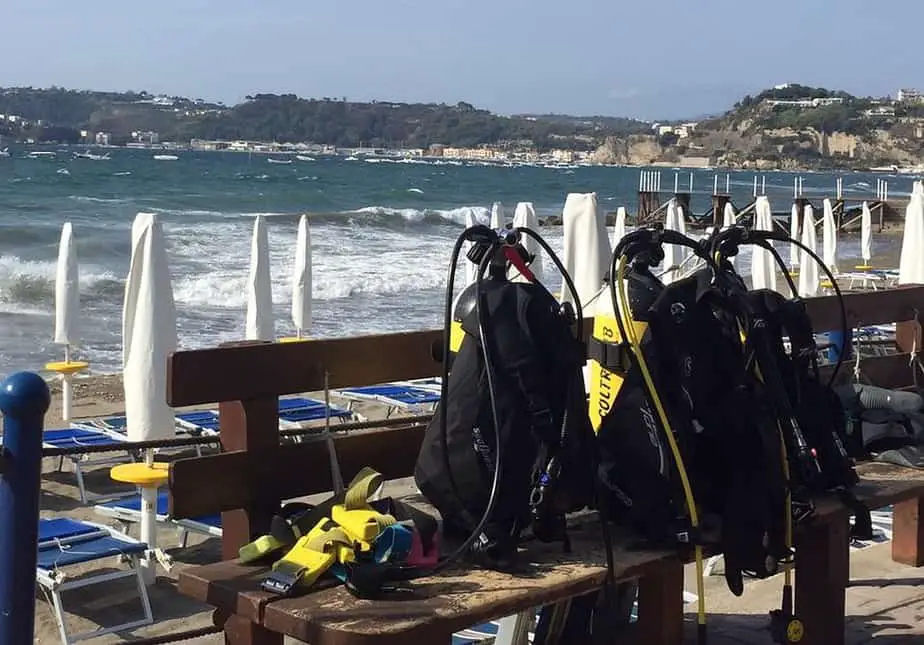When you’re just starting out with scuba diving, you are probably not yet willing to make an upfront investment of $1,000 to $2,000 to purchase a full set of your own scuba gear. You’ll probably make due with renting for the time being. However, if you plan on scuba diving every weekend or at least a few times a month, it starts to make a lot of sense to have your own set of scuba gear.
Should you buy your own dive gear? There are many benefits to owning, the most obvious of which is that it’s more affordable in the long run if you scuba dive frequently enough. There are additional advantages to owning instead of renting such as better hygiene, comfort, familiarity with gear, access to better features, and peace of mind. Renting is the better option if you don’t dive frequently enough to justify buying and prefer the convenience of not travelling with your scuba gear.
In this article, we will discuss the pros and cons of buying your own dive gear instead of renting. We lean heavily towards having a set of your own personal scuba gear, however that advice is not applicable to everyone. There are legitimate reasons why someone might benefit more from renting. We’ll discuss all of these topics in more detail below.
Why you should buy your own dive gear
In this section, we provide our arguments in favor of purchasing a set of your own scuba gear. Overall, we feel that this is the right path to go down, especially if you plan on scuba diving in the months and years to come.
Saves money in the long run

Whether you rent or buy, it’s going to cost you. The difference is that when you buy, you are paying a large sum of money up front, whereas renting is more affordable in the short term. Still, the price of renting a full scuba kit can cost upwards of $30 to $70 USD a day depending on where you’re renting from.
That may not seem like much money at first, but depending on how often you snorkel, the cost of renting will add up. If we assume that the cost of a full scuba kit is around $1,000 to $2,000 USD, so let’s say around $1,500 on average, then renting at an average of $50/day means that after renting 30 times, you have essentially paid the same price as buying the gear outright.
Thirty dives is not that many; a lot of divers can easily achieve that number in a single dive season. Unless you’re diving, say, less than 10 times a year, it is worth seriously considering buying your own scuba kit. It has a lot more advantages than just cost, so even if the math is still in favor of renting, perhaps the other benefits will still make buying worth it.
You might want to employ a hybrid approach – buying only the smaller, easily transportable items like a mask, snorkel, fins, SPG, and dive computer, and renting the rest. This can slightly decrease the cost while also making it easier on you while travelling by plane.
When you buy your gear, you are not “stuck” with it either. You could use it for a year, and if you decide you want to upgrade to something better or get out of scuba diving entirely, then sell your old equipment to recoup some of the cost towards your next kit.
It’s more hygienic
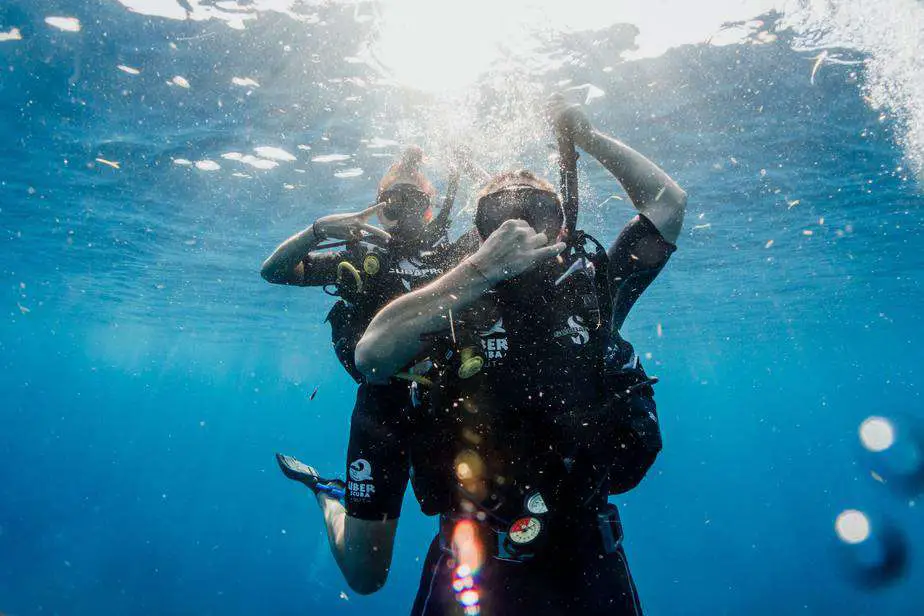
The COVID-19 pandemic has shined a massive spotlight on the importance of cleanliness and how easy it is for diseases to spread. For years, people were too nonchalant about disinfecting and sanitizing the things they were using. Hopefully, even after the pandemic is over, the general sentiment of being hygienic will remain, especially in dive shops.
As things stand, you have little to no control over how hygienic your rental scuba kit is. We can only hope that the dive shop employees have thoroughly disinfected the gear, particularly the regulator and wetsuit, as it changes from user to user.
Look, no offence to other scuba divers, but we are not exactly the cleanest bunch. It’s not unheard of for us divers to rinse our mask lenses using our spit (very common), to vomiting through our regulators during rough seas or from eating too much (less common), or peeing in our wetsuits because we can’t be bothered to hold it in (super-duper common). Some even delight in the temporary warmth the pee provides if the waters are chilly enough. Thankfully, going number 2 in the suit hasn’t been normalized.
It’s not something divers like to think about, but for the sake of driving home the point that you should buy your own dive gear, think about what the last person might have done with the rental kit that you are now using. Everything from the mask, regulator, and even wetsuit has likely been tainted in some way, shape, or form. Are you sure that the dive shop has taken the effort to completely eliminate the resilient bacteria, viruses, fungi, or any other unmentionables before passing them onto you?
At least when you own the equipment, it means it is YOUR own saliva, urine, and bacteria that you’re dealing with. You know exactly what you have been up to, and even if you are carrying some deadly bacteria or virus, it hasn’t killed you yet, so everything is cool.
Plus, with your own equipment, you will be responsible for maintaining it. If you are the paranoid type and don’t trust the dive shop employees to do a good job, then you can take matters into your own hands and rinse every nook and cranny of your kit until you are confident it’s clean. This sounds like a pain in the butt, but trust me, once you’ve spent a couple grand on a scuba kit, you will treat it like it’s your baby.
Fits you comfortably
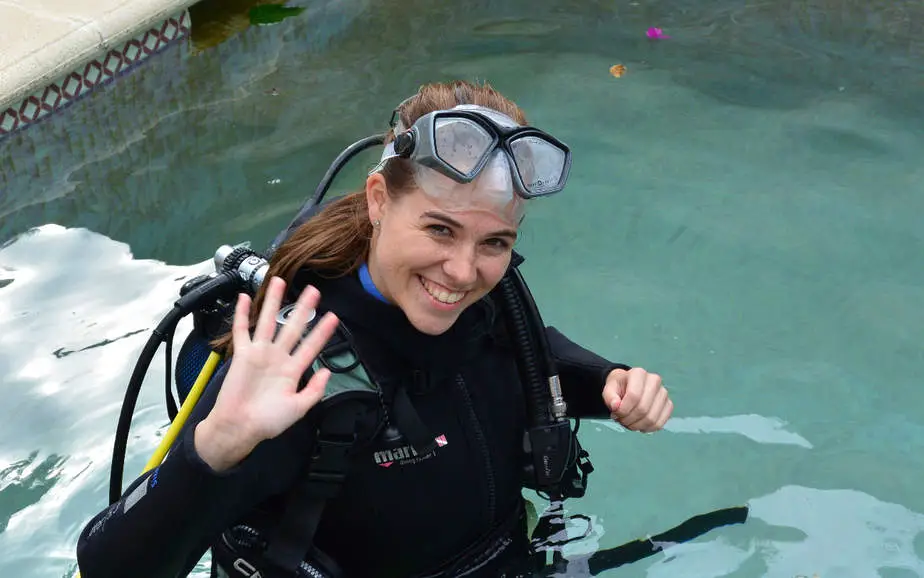
Getting the right fit is such a nightmare. It seems like every country, nay, every scuba gear manufacturer within the same country has slightly different definitions on what constitutes a large or medium or small.
You could try out 5 different wetsuits from 5 different brands and get 5 different results. You could be a medium in one brand, but a large in another. Sometimes the discrepancy is massive – you could be a small in one country, but an XL in another (going from North America to Asia).
Women have an uphill battle to fight because some manufacturers sell unisex products that still seem to fit men better. When it comes to something like a wetsuit, you absolutely must get one that is designed for your body shape. Women have wider hips and breasts to think about; the wetsuit must conform to that shape or else it will feel uncomfortable.
It’s difficult to get the right size if you’re buying online, however if the website is reputable, then it should have a generous no-questions-asked return policy. However, even trying on a product in-store is one degree removed from the actual thing. A mask that seemed to fit fine in-store might still leak water; those fins that seemed quite snug on land might give you blisters underwater. Some dive shops have an indoor pool for customers to test out the equipment – take advantage of it.
Wetsuits are the most notorious pieces of dive gear when it comes to getting the right size. Too tight and it will restrict your blood flow and mobility. You might not even be able to zip it up. If a wetsuit is even slightly loose, then it’s too loose. Water will flush out all the warm water inside and you lose the thermal protection it is intended to provide.
Knowing the above, imagine how annoying it is renting scuba gear and wasting time trying to get the right fit every time. Why not just do this headache inducing, trial-and-error dependent process just the one time and then not have to worry about it in the near future?
With your own scuba kit, you already know that it fits you just the way you like. You don’t have to worry about blisters, tight straps, loose fins, uncomfortable BCDs or anything like that. You can just put everything on, no muss no fuss, and you’re good to go.
You know how to use it
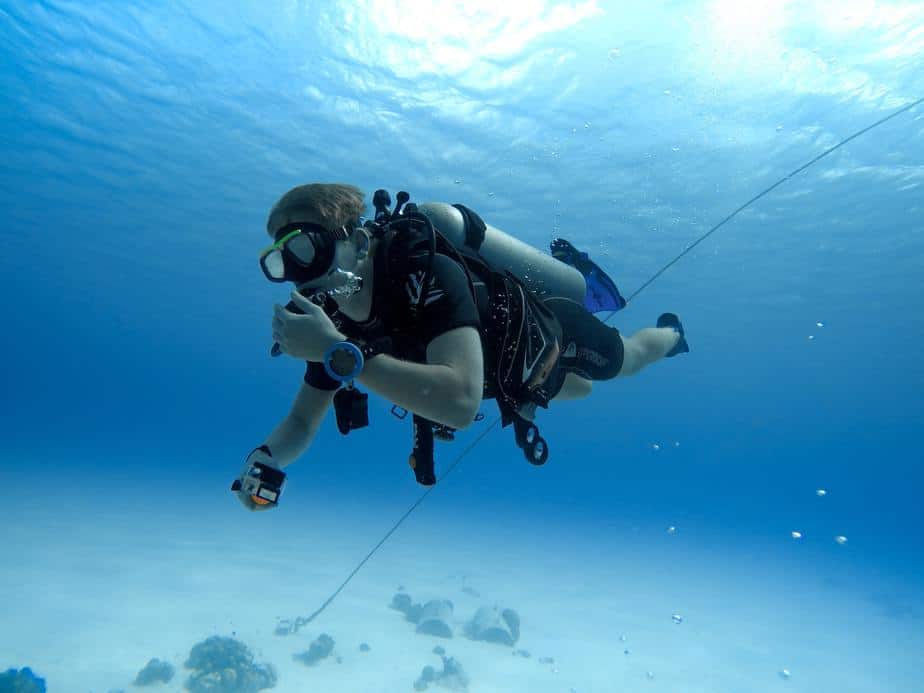
It can be fun to learn things at your own pace sometimes. Like getting a new car, figuring out what new features your new vehicle has can be delightful and you’ll feel like a kid again. This is not one of those times. When you’re 20 meters underwater, you want to know that your dive computer is working as intended, your BCD is responsive, and that you’re reading your gauges correctly.
In a 2014 paper titled Why Divers Die published by Edmonds et al, they found that equipment failure (35%) or misuse (35%) was often the cause of a diving fatality. Equipment malfunctions happen sometimes, and you can possibly catch it early by doing a dive buddy check before entering the water.
The part that we want to focus on, however, is the equipment misuse part. If you are renting your equipment, and therefore are not familiar with it, it would be fair to say that you have a higher probability of misusing it and this can jeopardize your safety.
Going back to the car analogy, if you are constantly switching which cars you are driving, it’s hard for you to feel comfortable even if theoretically it should be very similar. Most dive gear takes practice and time until it becomes second nature to use.
By having your own reliable scuba kit that you are intimately familiar with, you will always be on top of your game and have expert control over every action you do underwater. This is crucial because, should you encounter a problem situation, you will waste less time figuring out what went wrong and you can spring right into action.
You know what to expect each time
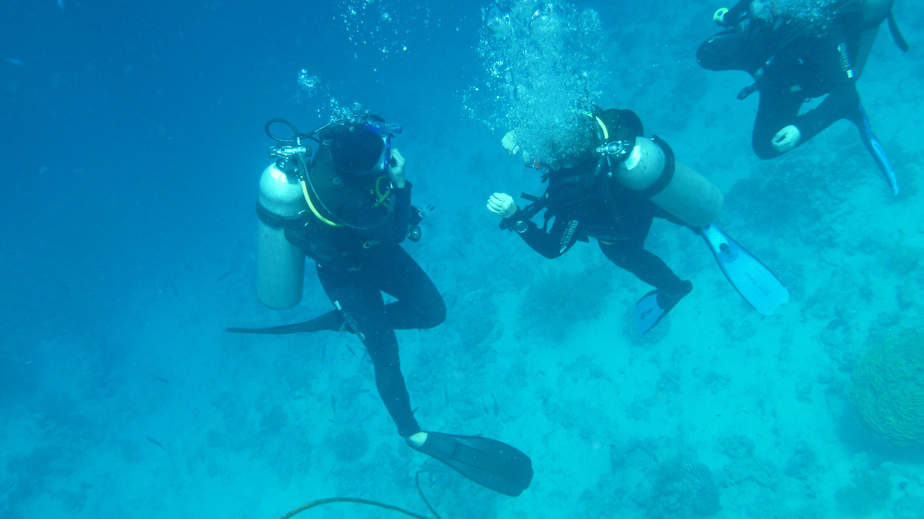
I like surprises as much as the next person. Pleasant surprises, hopefully. What I am not a fan of are unpleasant surprises. I think you would agree with that sentiment. When you rent scuba gear, you might be in for some kind of surprise, but perhaps not the good kind.
Not all dive shops are run to the same standard. As such, you cannot expect the same level of service or equipment selection at each one. Some shops run a tight ship, and their employees are hyper-vigilant about keeping the equipment in tip-top shape. Others are more lackadaisical about it.
Sometimes it’s not even the dive shop’s fault; all it takes is one careless diver to mistreat the equipment, and this is easy to happen due to ignorance or lack of care because it’s not their equipment. Whatever the case, the chances for there to be a bad actor is high when renting.
Furthermore, sometimes a problem isn’t obvious until you’re in the water. Even a pre-dive safety check isn’t foolproof. The issue might be a leaking drysuit or damaged backup regulator. These things might not come to light until you’re already in the water.
As much as we want to put out trust in dive shop employees to check and double-check their equipment, sometimes a few mistakes slip through the cracks. The reality is that dive shops are often overworked and understaffed. Instead of rolling the dice on your rental scuba kit every time, why not just buy your own and ensure that it is maintained to a high standard?
Saves time
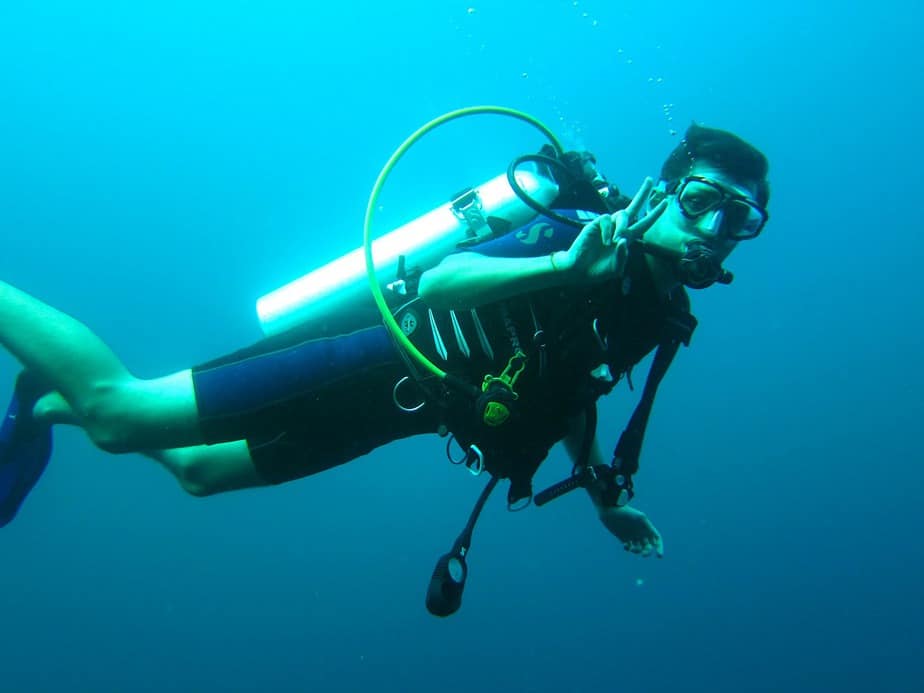
After spending a couple of grand getting some brand new scuba equipment, you’ll be likely to get as much use out of it to justify (and enjoy) your investment.
If you live in a landlocked state, you can still get good use out of your equipment by doing some freshwater diving such as altitude diving. And if you happen to live in a coastal state such as Florida, then you can definitely get the best bang for your buck by going to the coast.
With your own personal set of dive gear, you can go on spontaneous dives with your friends. No more suffering through an hours-long process of going to the dive shop to try out the gear and renting it out when you could already be underwater. With your own gear, you can just show up and be underwater in a matter of minutes.
As we also mentioned, dive shops don’t always have the exact scuba gear you want, whether that means the right size or the right functionality or even the right quality. This is especially the case when it comes to renting a scuba tank; most dive shops only rent out AL80 tanks. If you want to rent a steel tank, tough luck, you need to buy your own.
Also, sorting through a pile of rubbish gear for the hidden nugget of gold that fits you is a waste of time and stressful. You will be forced to arrive as early as possible so you can get the best pick of the bunch, and even then there’s no guarantee.
When you go the path of purchasing your own gear, you just spend the time upfront doing the research, going to various dive shops and trying on the gear, making sure it has the right fit and functionality, so that you can save time in the long run. By front-loading the expense and time spent, you don’t have to worry about any of these issues anymore and it will immediately be rewarding.
Those of you who always wanted to dive more can use purchasing a full set of scuba gear as an incentive to dive more. You don’t want all of this expensive scuba gear to just sit in storage all the time, do you? That’s like buying a nice car and never driving it. You need to take it out for a spin.
If you can convince a group of friends to purchase a full set as well, you guys can plan a shore dive together and be more spontaneous with when you want to dive. And if you and your friends one day decide that you don’t want to dive as much anymore, you can always sell it. The second-hand market for scuba gear is thriving, and you can recoup some of the costs easily.
Gives peace of mind
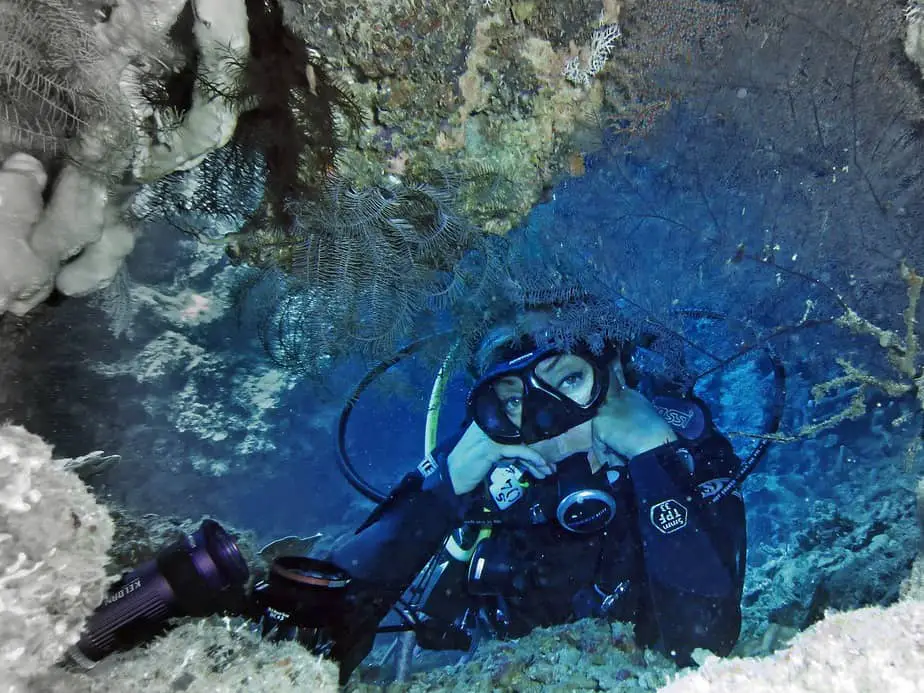
Knowing that you can get all of these advantages: comfort, consistency, reliability, cleanliness, financial savings, and time-efficiency, you will have peace of mind that renters don’t have.
Nobody cares more about the gear you’re using than yourself, even more so if you literally own the gear instead of renting. You never need to stress about how many other people have shared that regulator; there’s only one person, and you trust that person very much: yourself.
You can trust yourself to thoroughly sanitize and maintain your own gear. You know that you took great care of it both underwater and out of it. You can rely on your gear because you know that it hasn’t been misused; you did hours of research and shopping to get the most high quality items that you could afford, with the features, fit, and comfort that you want.
Since you were involved in each step of the process, you can be confident that your gear is clean, reliable, and comfortable. Knowing all of this will reduce your stress and anxiety. Instead of wasting mental energy wondering, “I wonder who else peed in this wetsuit or vomited on the regulator”, you can instead focus entirely on the dive.
By freeing up your mental energy, it becomes much easier to stay calm and focus on staying safe. With a clear mind, you can also enjoy scuba diving to its fullest extent. It’s really hard to appreciate the underwater vistas and marine life if you’re constantly wondering whether your dive computer is outputting the right readings or if your wetsuit is rubbing painfully against you.
With your own gear, you will feel much better about diving, and that translates to longer bottom times, safer dives, and more enjoyment.
Why you should rent your scuba gear
While there are many benefits to buying your own dive gear, it would be remiss of us to not consider the other side. Not everyone should buy their own gear. Sometimes renting is the better option depending on your situation, and we cover some of those arguments here.
You don’t dive often enough
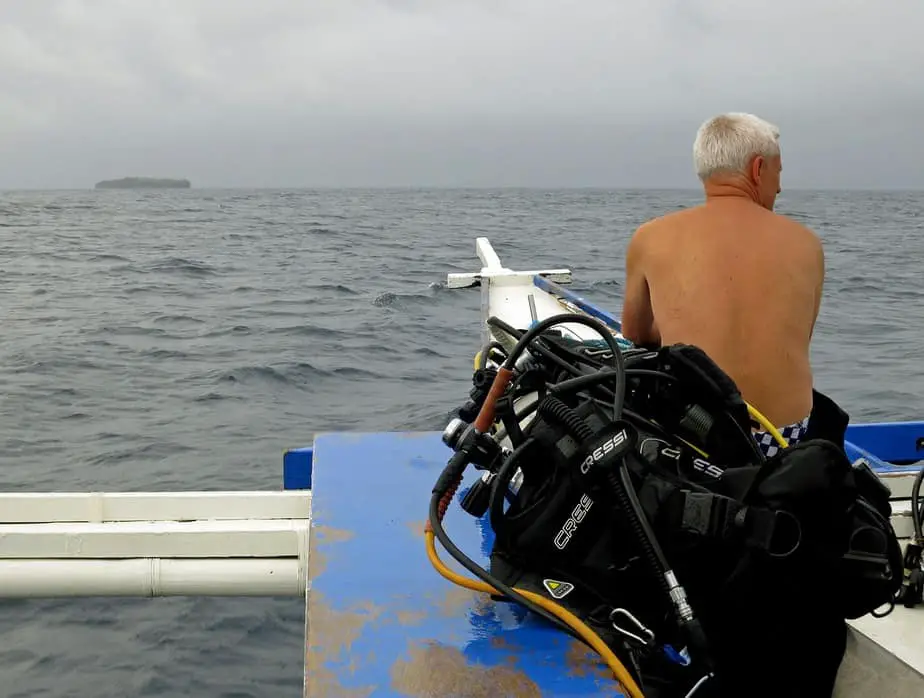
Not everyone is lucky enough to live near the coast. While freshwater diving is an option for those who are landlocked (so as not to let the scuba gear sit in storage for most of the year), not everyone wants to dive in cold water. Besides, it requires different gear as well, such as a thicker wetsuit or even a drysuit as well as a cold water regulator, so it’s not like it’s interchangeable.
If your only opportunity to scuba dive is during your annual vacation, unless you are doing a whole lot of diving, it’s probably not worth it for someone in your position to purchase your gear. We did the math earlier in this article, but if you scuba dive approximately 30 times using rented gear, the amount of money you spent is already equivalent to purchasing all of the gear outright.
Depending on how often you scuba dive in a year, calculating whether it is worth it in terms of finances, you have to consider how often you plan on diving. For instance, if you scuba dive less than 10 times a year, then it’s probably not worth the cost for you. There are some downsides to owning gear too, and you probably don’t want to deal with them considering how infrequently you dive.
You don’t love to scuba dive
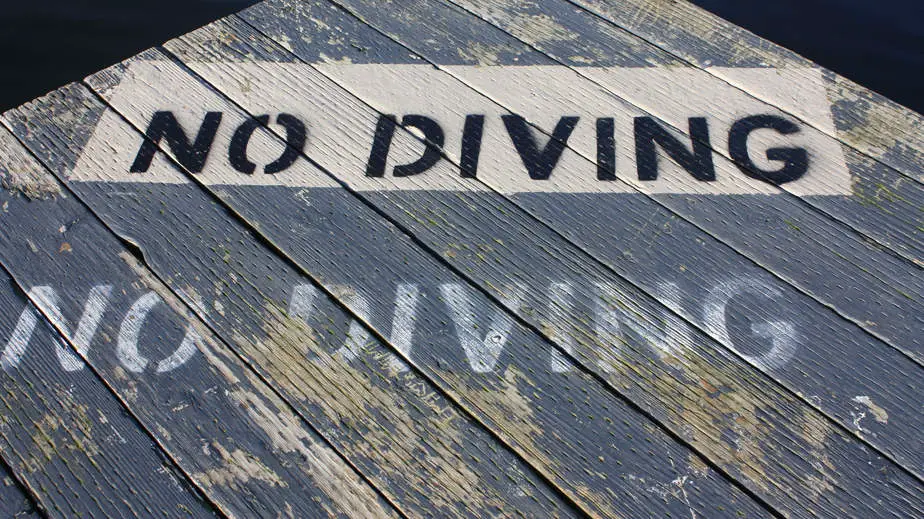
Some people aren’t sure if they like to scuba dive. For these people, maybe try starting out with snorkeling as a stepping stone and renting or even buying some snorkel gear. The mask, snorkel, and fins used in snorkeling can also be used for scuba diving. You can also scuba dive without being certified if you go SNUBA diving or go on a Discover Scuba Diving course.
Perhaps you’re already certified but you fell out of love with scuba diving. Don’t get us wrong, you don’t have to love scuba diving in order to do it. But unlike snorkeling, scuba diving requires significantly more investment. You had to go and get certified after all, and that doesn’t happen unless you had some interest in this sport in the first place. But for whatever reason, you’ve lost your passion for it.
If that is the case, then renting is the better option. Since scuba diving certifications never expire, you can always take some time off and see if your passion will return. Maybe something will reignite your desire to scuba dive again, maybe not. However, there still might be times when you can scuba dive on vacation with family or with friends, and you can just rent in the meantime.
You don’t want to worry about transporting it
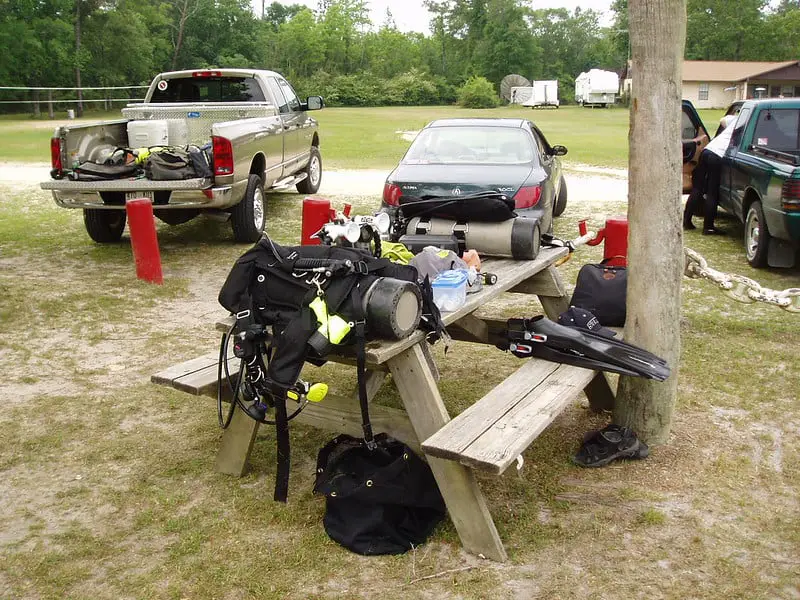
Scuba gear is a nightmare to transport if you are travelling by plane. Dealing with the different airlines and airport security is a hassle.
First, you have to research what the luggage limits are, and some airlines will be stricter than others. Typically, the cheaper airlines and charter flights are the most stringent about enforcing the rules. Even if you’ve traveled with a particular airline before, you might want to double check that they haven’t changed the restrictions.
Then you have to consider how much you have to pay to transport your belongings. About half the airlines will allow a certain amount of luggage for free, and you have to pay a fee to bring more than that. Airlines that don’t even give you one free luggage means you’ll have to pay even more. Some airlines will let you bring a separate sports luggage bag, so find out if your airline offers that.
In order to not overpay on fees, you have to then consider which gear you want to pack and which you should rent since some of the larger items are way too bulky to bring on vacation. Things like the wetsuit, fins, BCD, scuba tank, and the like are probably staying at home. It’s much more convenient to rent them at your destination.
You also have to pack smart to save space and not make airport security suspicious. For instance, you probably can’t bring a dive knife in your carry-on. Anything with batteries should be taken out and packed in the checked-in luggage because it’s a fire hazard.
Items that you probably should bring with you are the essentials like a dive computer, regulator, and mask. So in other words, even if you want to own a full set of scuba gear, realistically you’ll only be bringing the smaller items with you on vacation. It’s not worth it unless you live near the coast and can just fit everything into the trunk of your car.
Even after you arrive at the destination, your worries are not over. You still have to deal with lugging it around until you’re ready to use it. Even after you’re done, since it is your own gear, you need to worry about maintenance. Are you able to rinse it and thoroughly clean the gear that you brought?
If reading all of this is inducing a headache, then you should probably consider renting most of your gear at the destination so you don’t have to deal with transportation woes.
You have kids that will outgrow the gear
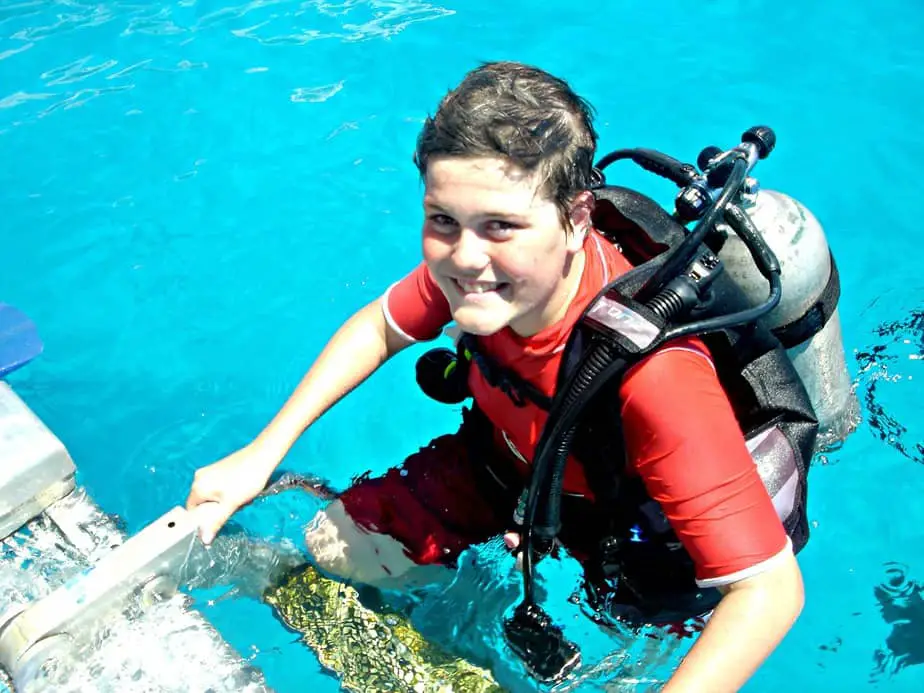
It’s probably not worth it to purchase gear for your kids. This is especially true if you have young boys who will grow much, much larger over the years. Since scuba gear needs to fit tight, there’s no such thing as buying a larger size and hoping they’ll “grow into it.” A mask or wetsuit that leaks, or fins that won’t stay on won’t do much good.
If you have children that are close to each other in terms of age, it might be worth buying gear and then giving it to a younger child once the older one outgrows it. However, these are worse than regular hand-me-downs because, again, it needs to fit perfectly. This is not something you want to bank on working out for you.
With this in mind, it might be better to just rent scuba gear for your kids. Since the minimum age for scuba diving is only 10 years old, if you are an avid diver, you will probably want to introduce your kids to this wonderful sport. So you don’t end up with storage full of equipment that your kids have outgrown, renting is a viable choice.
Parting words
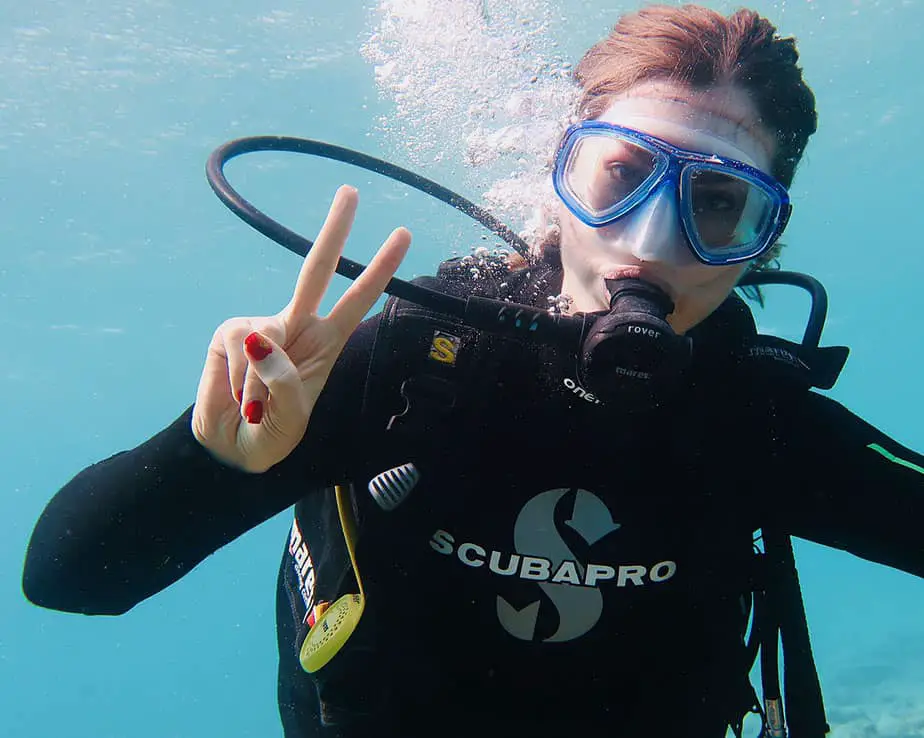
If you are an avid diver, we feel it is a no-brainer that you should have your own set of scuba gear, especially if you live along the coast. Even people living in a landlocked state can justify buying gear if they intend on going freshwater diving.
For those of you who only dive during your annual vacation, it is less clear whether you should buy or rent. However, due to the impracticality (and expense) of bringing your entire scuba kit with you on a plane, you might opt for a hybrid approach – rent the bulkiest items at the destination, and buy the smaller, essential items like regulator, mask, dive computer.
To be fair, most scuba divers acquire their gear over time, and in the meantime, they rent what they don’t have. It’s very rare for a diver to buy their entire kit in one go. In fact, some divers purposely don’t own certain pieces if they know that it’s a hassle to travel with (e.g. a scuba tank), and they’d rather just rent at the destination.
When you rent scuba gear, you are at the mercy of many random variables. You don’t know how thoroughly the equipment has been sanitized or if they are in good condition. For example, I’ve rented fins that didn’t fit properly and gave me blisters that lasted for weeks. I’ve had masks that leaked constantly and the straps dug into my head. I’ve used a regulator that began free-flowing at depth, causing me to abort my dive – it could have been a fatal situation if I panicked.
That last example was just unlucky and not at all indicative of the quality of rental gear you should expect to get. Still, your mileage may vary when you rent, and that’s a problem.
Buying your own gear ensures that the gear is hygienic, fits snug, feels comfortable, does what you want it to do, and you are familiar with how to use it to its fullest. How consistently reliable your own gear is will give you peace of mind and let you enjoy scuba diving to the fullest.
With that said, it seems like the hybrid approach is best if you need to travel by plane to your destination, so the answer to whether you should buy or rent scuba gear is: do a bit of both.
If you live near the coast and can plan a shore dive with your friends, then by all means, buy the full set of scuba gear and take only what you need if you are vacationing outside of the country.

